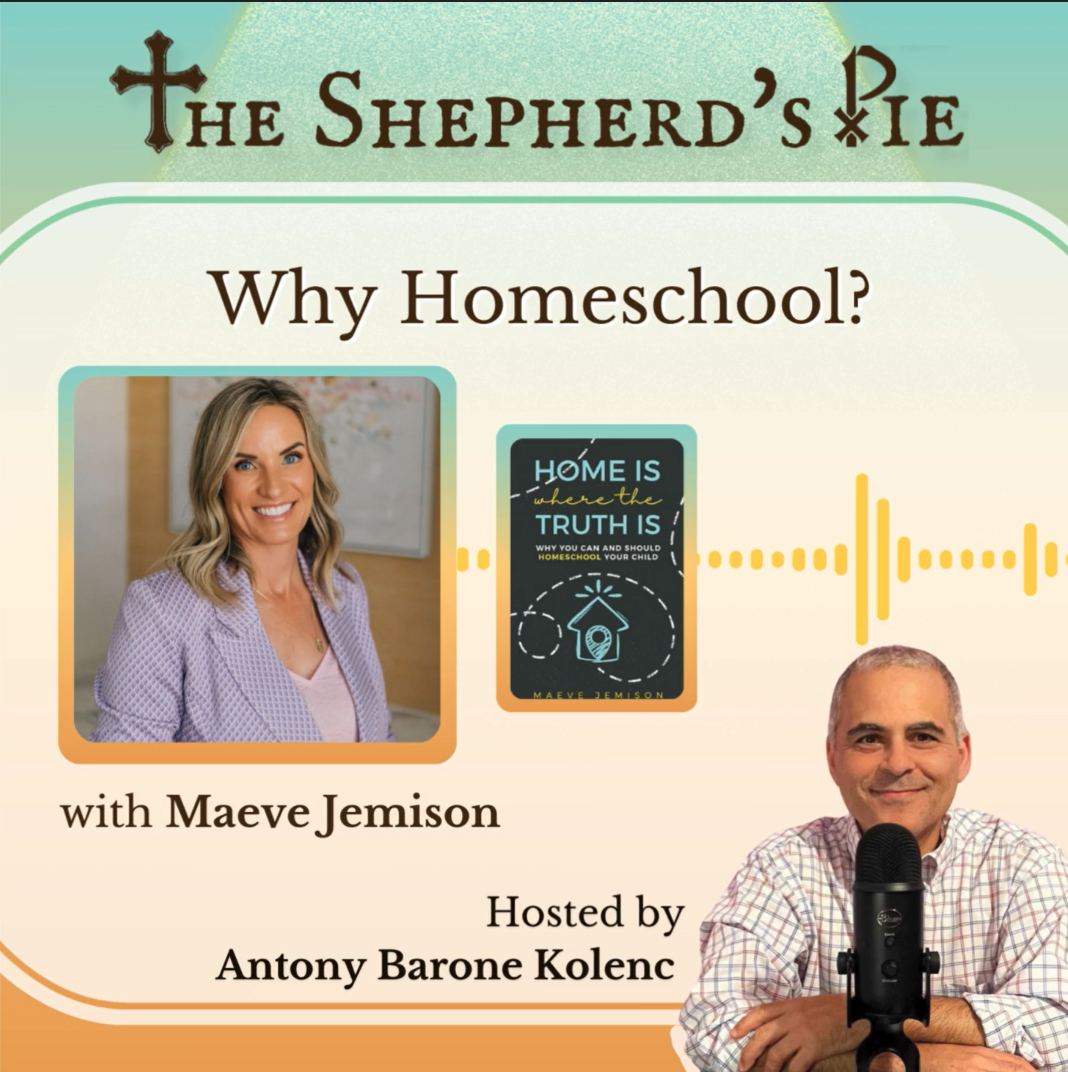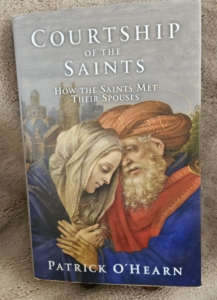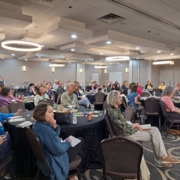Eternity of Spousal Love
Eternity of Spousal Love
After the death of my sweet father, my mother’s anguish was excruciating. The story of my father’s suffering and death was tragic. My mother’s grief was multifaceted. No longer having her best friend and beloved beside her in life was unbearable. Something else, however, crippled her even to consider: Would they, upon meeting in Heaven, recognize each other as husband and wife, or, as some posit, would they be so consumed in the beatific vision that their souls would never recognize a sense of past relationship? Would they be as strangers, or does Heaven allow for recognition of sacred, earthly bonds?
First, it is important to confirm the value that God has placed on marriage. In Genesis 2:18 God said, “It is not good for Man to be alone; I will make a helper fit for him.” The original Hebrew word, ezer, is commonly translated to ‘helper.’ However, in her book, Lost Women of the Bible, Carolyn Custis James points out that “the word ezer is used most often in the Old Testament to refer to God as Israel’s helper in times of trouble. … The ezer is a warrior.” (Custis, Lost Women of the Bible, 35-36) God’s design, therefore, is for a spouse to be a fierce protector, assisting their beloved on the path toward God. On our wedding day we likely had no inkling of the battles we would fight alongside our spouse – or on behalf of our spouse, for that matter. Yet it is the strength and fidelity with which we strive beside our spouse in the trenches of life that defines the kind of protector we are. For better or worse, in sickness and health – how have we fought for or protected our beloved?
In Jeremiah 1:5 God says, “Before I formed you in the womb, I knew you, before you were born, I set you apart.” It follows then that God knows our spouse long before we do. He knows our complimentary natures and interests will find fulfillment in each other. He knows the perfect ezer for us. Thus, the very foundation of our relationship with our future spouse is known by God Himself before we are even born. In the eternal eyes of God, does it follow that the love we will share with our spouse has no beginning? Perhaps this is what the Venerable Fulton J. Sheen refers to in his work The World’s First Love when he says, “Every person carries within his heart a blueprint of the one he loves. What seems to be “love at first sight” is the fulfillment of desire, the realization of a dream.” (Venerable Fulton J. Sheen, The World’s First Love, 2)
The more common question, however, is not whether each person has a potential soulmate or blueprint of the perfect spouse written on their heart. The question which weighs more on some hearts, especially those who have lost a spouse to death, is whether the relationship with our spouse ends when their soul leaves this world. If both spouses attain Heaven, will they recognize their past spouse as the person with whom they shared the sacrament of matrimony? Or, conversely, will every soul forget such earthly relationships? Naturally, when this question is posited, strong emotions can arise and theorization can cause significant debate. It is best, in these cases, to review Biblical passages and the writings of the Saints. It is prudent to remember that the reality will remain a mystery until we arrive in Heaven’s splendor.
If the connection to our spouse is simply that of a corporeal attachment or strictly a physical ‘oneness’, the argument that the spousal relationship ends upon the death of either spouse is very convincing. The body is dead, and so must be the bodily connection. The problem with this idea is that marriage is not simply corporal but spiritual. Marriage is not a contract – a legalistic agreement between two parties. Marriage is a covenant, a spiritual agreement or promise between God, man, and wife of a perpetual nature. The Venerable Fulton J. Sheen says:
This unity of two in one flesh is not just biological, as it is in animals. Rather, it has a spiritual and psychic quality understood by few. … This union of the object and the mind, or the thing known and the knower, is one of the closest unions possible in the natural order. … Sacred Scripture speaks of marriage as knowledge because it represents a union much more profound and lasting, much more bound up with our psychic structure, than the mere biological unity that comes from the mating of animals. Marriage involves a soul, a mind, a heart, and a will as much as it involves reproductive organs. … The union, therefore, may be described as psychosomatic, in the sense that it affects the whole person, body and soul, and not merely the lower part alone. (Venerable Fulton J. Sheen, Three to Get Married, 124-125)
How then can something that God joined together – body and soul – be ‘undone’ even by God Himself? Remember, in the gospel of Matthew, Jesus states:
Have you not read that He who made them from the beginning made them male and female, and said, “For this reason a man shall leave his father and mother and be joined to his wife, and the two shall become one’? So, they are no longer two but one. What therefore God has joined together, let no man put asunder.” (Matt 19:5-6)
In response to those who would posit, ‘God can do anything He wants’ (i.e. – separate what He had joined together), C.S. Lewis retorts, “His Omnipotence means power to do all that is intrinsically possible, not to do the intrinsically impossible. You may attribute miracles to Him, but not nonsense.” (C.S. Lewis, The Problem of Pain, 18) Would it be nonsense, then, for God to put asunder what He had joined? Or, would it make sense that a husband and wife who had made a covenant of marriage with God and lived their vows according to God’s law still share a special relationship or recognition in Heaven?
One might ask what this means for someone who has multiple spouses due to being widowed and then remarried. Are both individuals recognized as your spouse in Heaven? First, remember that relationships in Heaven remain a mystery to those of us on earth. If we consider, however, that the primary goal of marriage is to help your spouse get to Heaven, even if someone remarries, their new spouse takes up the proverbial baton. The new spouse is their ezer for the remainder of their life and they are their spouse’s. When both spouses greet that individual in Heaven, they both would certainly bear the honor of having helped that person get to Heaven. Neither marriage sacrament supersedes or negates the other. In Heaven, the construct of marriage would no longer be necessary but the sacramental remnant could very much remain, for any and all spouses. Now, in communion with all the saints, they enjoy the eternal bliss they helped one another attain.
Scholar and philosopher, Dietrich von Hildebrand says this of the abiding nature of sanctifying love:
Collaboration in the sanctification of the beloved becomes the focus of our love, raising it gloriously above the life of this world. It embraces the beloved not only within the limits of this life and for this life, but also for eternity. The eternal welfare of the beloved is the culminating point of all that love affirms. This lends to this love a touching selflessness which is not possessed even by the highest natural love. (Dietrich von Hildebrand, Marriage: The Mystery of Faithful Love, 46-47)
Even for the sake of proving an eternity of spousal love, one cannot ignore Matthew’s Gospel where Jesus did say, “For in the resurrection they shall neither marry nor be married; but shall be as the angels of God in heaven. (Matt 22:30) Certainly! Why would new marriages be made in Heaven when the initiation of that sacrament is primarily to help each other obtain Heaven? This does not, however, negate a preexisting, sacred bond between past spouses. Furthermore, God reserves special places in Heaven for those He holds most dear: His Son at His right hand with Mary, Queen of Heaven, at Jesus’s right hand (Psalm 45:9). This reveals that some earthly relationships are indeed lasting in Heaven – Jesus as Son, Mary as mother. Thus, it is probable that the spousal relationship will be as honored or remembered in Heaven as it was on earth.
Another argument for the eternal nature of the spousal relationship can be seen in the analogy of Christ’s relationship to His church.
Be subject to one another out of reverence for Christ. Wives, be subject to your husbands, as to the Lord. For the husband is the head of the wife as Christ is the head of the church, his body, and is himself its Savior. As the church is subject to Christ, so let wives also be subject in everything to their husbands. Husbands, love your wives, as Christ loved the church and gave himself up for her that he might sanctify her, having cleansed her by the washing of water with the word, that he might present the church to himself in splendor, without spot or wrinkle or any such thing that she might be holy and without blemish. Even so husbands should love their wives as their own bodies. He who loves his wife loves himself. For no man hates his own flesh, but nourishes and cherishes it, as Christ does the church, because we are members of his body. (Eph 5:21-20)
Christ is head of His church as husbands are head of their wives. Will Christ’s dominion over His Church end at the final resurrection when there is no longer an earthly church? Did He give Himself up in order to cleanse and sanctify her and present her spotless before Him only to become separate from her in Heaven? No! Christ’s Church is His care, His beloved for all eternity. Similarly, according to this analogy, so must the husband and wife, connected as the head is to its body, be in some sense connected even when the flesh has died.
Even our earthly bodies will be raised at the final resurrection according to St. Paul:
For the Lord Himself will descend from heaven with a shout, with the voice of the archangel, and with the trumpet of God; and the dead in Christ shall rise first. Then we who are alive and remain shall be caught up together with them in the clouds to meet the Lord in the air, and thus we shall always be with the Lord. (1 Thessalonians 4:16-17)
Thus, body and soul, we will be with Christ and He with His Church. It is fair to believe, then, that an acknowledgement between spouses of their body and soul connection will persist in eternity.
Ultimately, the spousal devotion is but a glimpse of the brilliant love awaiting us in the arms of Our Heavenly Father. Our tenderness for our spouse encourages us daily to assist them in obtaining Heavenly rest. Surely God, in His boundless benevolence, will allow us the joy of seeing our spouse, our ezer, in Heaven, whom we had fought tirelessly beside in the trenches of this life. C.S. Lewis captures this longing in an exchange between he and his wife near the end of her fatal illness:
[C.S. Lewis asked her] “If you can – if it is allowed – come to me when I too am on my death bed.” “Allowed!” she said. “Heaven would have a job to hold me; and as for Hell, I’d break it to bits.”… There was no myth and no joke about the will, deeper than any feeling, that flashed through her. (C.S. Lewis, A Grief Observed, 75)
There is significant proof in Biblical passages as well as in the writings of Saints and renown thinkers that the spousal love will endure in some way for eternity. When precisely the first conception or foundation of the spousal connection is created and whether it endures in Heaven is known only by God and those who have attained Heaven. Only those of us who have loved our spouses profoundly, body and soul, can know the depth with which we hope to know them as intimately in our next lives.

… Love, which is a reflection of God’s unbodied essence, will remain their eternal ecstasy! There will be no faith in heaven, for we will already see; there will be no hope in heaven, for we will already possess; but there will always be love. God is Love! ~ Venerable Fulton J. Sheen, Three to Get Married, 216
Copyright 2025 by Emily Henson
Edited by Maggie Rosario





 Photo by Eugenia Remark: https://www.pexels.com/photo/decorated-cards-golden-plate-and-ring-in-box-14784845/
Photo by Eugenia Remark: https://www.pexels.com/photo/decorated-cards-golden-plate-and-ring-in-box-14784845/ into the 21st Century. They shaped the church in some way through their sacrifice and devotion to one another and to their families by making the prayer their foundation and God the center of their lives.
into the 21st Century. They shaped the church in some way through their sacrifice and devotion to one another and to their families by making the prayer their foundation and God the center of their lives.









